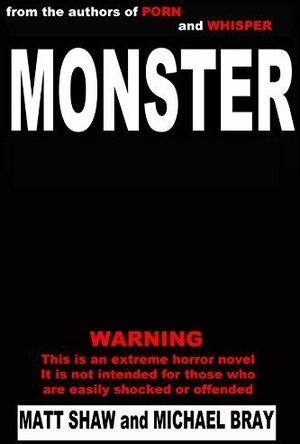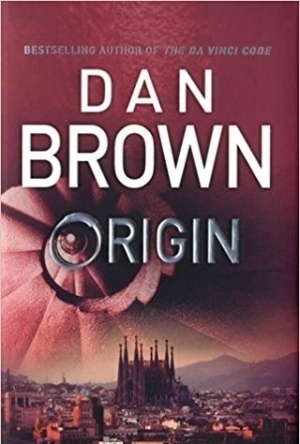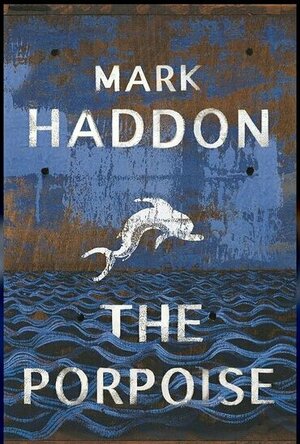
Prague Travel Guide and Offline City Map
Travel and Navigation
App
Offline Maps and much more! Discover new places and insider tips. Collect, save and organize them...

GoSkyWatch Planetarium - Astronomy Night Sky Guide
Navigation, Reference and Education
App
Easily and quickly identify and locate stars, planets, comets, constellations, galaxies and more by...
Lou Grande (148 KP) rated Monster: A Novel of Extreme Horror and Gore in Books
May 9, 2018
Matt Shaw says in the introduction that he writes his endings to leave the audience reeling. That's true. Because I wasted three hours or so on one of the most underwhelming, anticlimactic, predictable endings I've ever read. It felt like he was written into a corner, so he just STOPPED. That's how abruptly it ends. And yeah, we all get it. "Who's the real monster?" Really original.
Also, it's Patrick Bateman in American Psycho, not NIcholas. Wikipedia is a thing. So is imdb. Do your research!
Benedick Lewis (3001 KP) rated Origin in Books
Jul 13, 2018
Then I didn’t touch Dan Brown again. Simply because I had other things to read and the premises weren’t that interesting - until Origin, which looked like it would be as shattering as the Da Vinci Code was. What I forgotten was I got older and more educated. Origin promises answers to two questions: where did we come from? Where are we going? These questions are repeated constantly and you start to get Rednex’s Cotton Eye Joe in your head. For about 100 pages the build up is admittedly incredible but at the same time you think you know what is going to happen because there are 300 plus pages left. I won’t spoil anything and I advise you not to read the blurb because that does 25% of the book for you. From then on, apparently it is a race against time but you never truly feel anything is at stake. When the answers do come, you feel like ‘oh, right’ as if someone told you a fact you didn’t know but not really going to remember. And, in summary, Origin is so badly written that you won’t remember it.
David McK (3721 KP) rated Mr. Midshipman Hornblower (Hornblower Saga: Chronological Order, #1) in Books
Jan 28, 2019
I was also completely unaware at the time, and only found out within the last couple of weeks, that this is also (technically) a prequel - i.e. written later, but set earlier - to more than a few of Forester's other Hornblower works.
Set during the Napoleonic Wars, these are your typical 'boys own' adventures of naval derring-do, that quite obviously set the template for other authors to follow (think [a:Bernard Cornwell|12542|Bernard Cornwell|https://images.gr-assets.com/authors/1240500522p2/12542.jpg] 'Sharpe' Series, or [a:Patrick O'Brian|5600|Patrick O'Brian|https://images.gr-assets.com/authors/1212630063p2/5600.jpg] 'Master and Commander' series).
Based on real life events, these novels (according to Wikipedia!) were also written in such a way that Hornblower was always off elsewhere when great naval battles occured during those wars, hence the reason he is never caught up in Trafalgar!
This particular entry, however, follows Hornblower's early career from when he first came on board (as a sea-sick Midshipman at Spithead), up until he receives his promotion to Lieutenant whilst a prisoner of the Spanish authorities, taking in night-time raids, 'cutting-out' expeditions, a (failed) attempt to start a revolt in France and his first examination for Lietunancy.
ClareR (6091 KP) rated The Porpoise in Books
Nov 6, 2019
This is not a comfortable read at all - abuse and incest feature strongly throughout the modern timeline (in the style of all good Greek Tragedies!). I did think about not continuing with the book at one point because I tend to avoid books with these themes, but the story really drew me in, particularly in the Greek timeline.
The way in which we initially move from modern day to Ancient Greece, using the yacht ‘The Porpoise’ to achieve this, was really cleverly done, I thought. The small parts which featured Shakespeare and his Pericles writing partner George Wilkins, seemed to be only loosely connected, but enjoyable nonetheless.
All in all, I really enjoyed this. I’m glad I stuck with it, because especially (but not exclusively!) in the case of the incest storyline, we really do see the strength of women, even though the men in their lives would want them to be cowed and obedient.
Many thanks to NetGalley and the publisher for my copy of this book.

Gray's Anatomy Premium for iPad
Medical and Education
App
*** GRAY'S ANATOMY PREMIUM INCLUDES 1000+ Original HD IMAGES*** *** 50% OFF SALE - SHORT TIME...
Disconnected: Youth, New Media, and the Ethics Gap
Carrie James and Henry Jenkins
Book
Fresh from a party, a teen posts a photo on Facebook of a friend drinking a beer. A college student...

Quick Docs Lite - Office Suite for PDF, Quickoffice, Microsoft Word and Class Notes edition
Business and Games
App
Using Microsoft Office has never been easier with this fantastic app that walks you through the...

Alchemic Phone - Alchemy in your pocket
Games and Education
App
Are you a good Alchemist ? You are tasked with rebuilding the universe, bit by bit, or rather...



